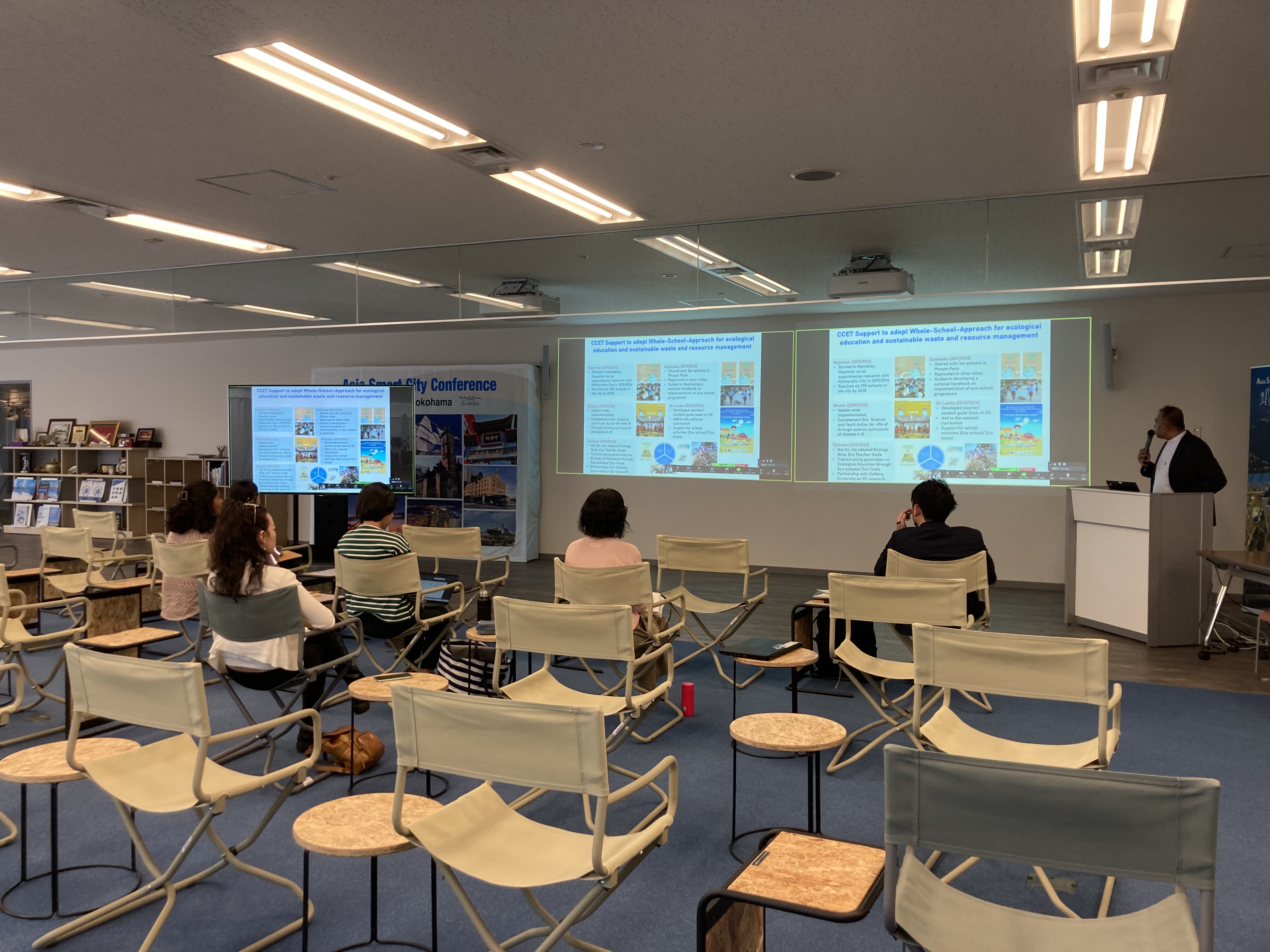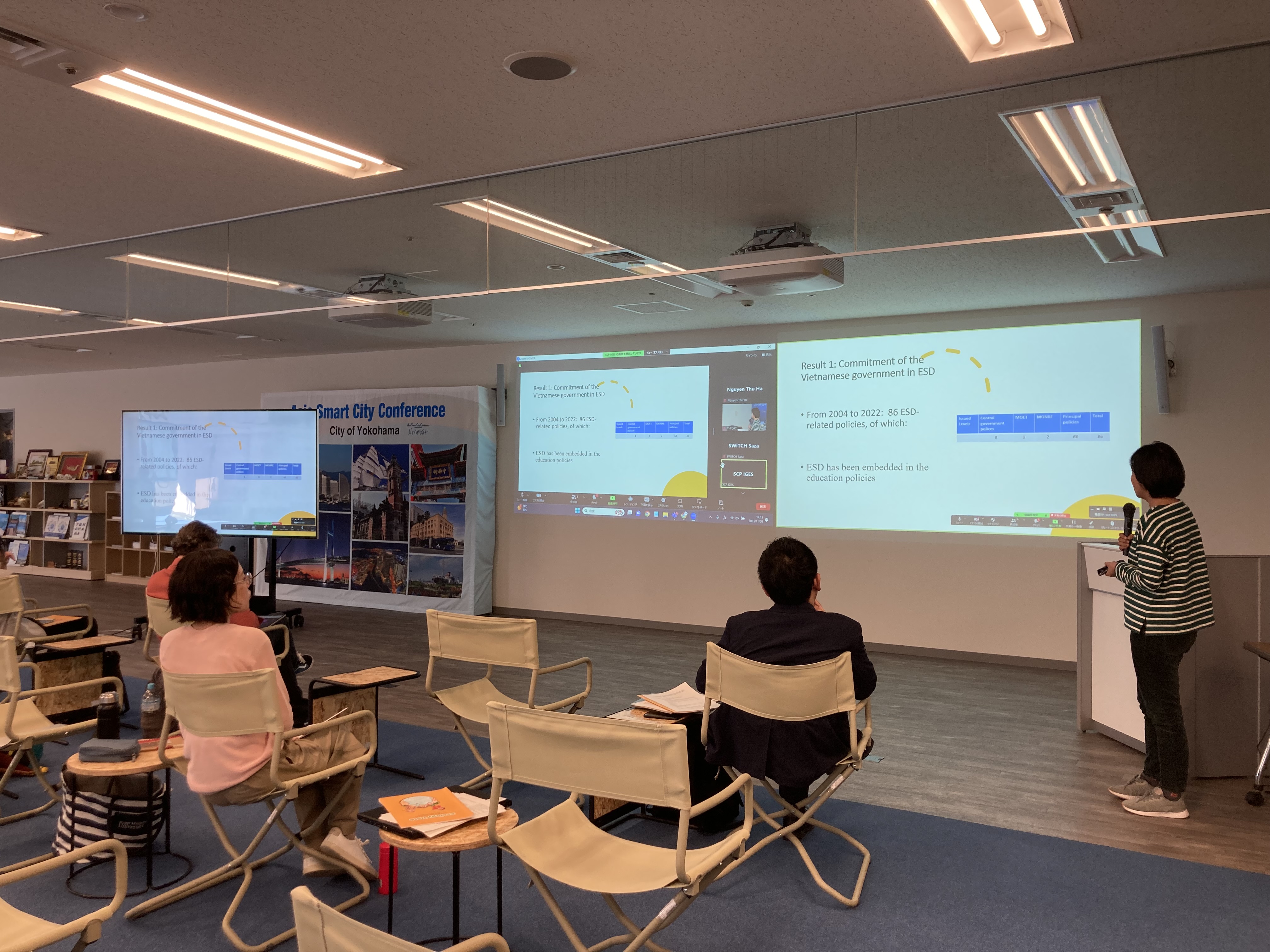The Education for Sustainable Development (ESD) and Environmental Education (EE) have garnered increasing attention in Japan and Vietnam. ESD and EE are recognized as vital components of national policies and goals within the education frameworks of both countries. Acknowledging the pivotal role of national policies and frameworks in reshaping educational approaches and pedagogies, the IGES Centre Collaborating with UNEP on Environmental Technologies (IGES-CCET) in Japan and the University of Danang - University of Science and Education in Vietnam have collaboratively undertaken research and initiatives. These efforts aim to enhance ESD and EE at both the national policymaking level and the grassroots level of formal and informal education systems.
To facilitate knowledge exchange and mutual learning, IGES-CCET, the University of Danang, and the Yokohama CITYNET Project Office jointly organized a study workshop on 8 November 2023 in Yokohama. The workshop brought together ESD and EE experts, educators, and practitioners from Japan and Vietnam.
Following the welcoming remarks by Dr. Premakumara Jagath Dickella Gamaralalage, Principal Researcher/Director of IGES-CCET, the workshop featured a presentation by Dr. Kinh Thi Kieu, Associate Professor at the University of Science and Education, on Vietnam's national ESD&EE policies and their implementation. Subsequent sessions included insights from Ms. Mana Saza, Director of SWiTCH, on sustainable education for the youth generation, and Mr. Tatsuhiro Kato, Secretary-General of the Japan Environmental Education Forum (JEEF), who discussed JEEF’s training of ESD/EE leaders and nature school activities.
Ms. Akiko Yamakoshi, Director of Administration at CITYNET Yokohama Project Office, shared Yokohama city's successful waste management education activities, emphasizing the city's achievements in waste reduction and how these experiences were shared with developing countries, including Da Nang City, through city-to-city cooperation.
The workshop also provided a platform for young researchers to present their findings. Mr. Dung, a Ph.D. student at the Institute of Urban Innovation, Yokohama National University, shared insights into energy-saving education for elementary schools through a JICA project. Additionally, Mr. Daichi Suzuki, a Master's student, and Ms. Kotone Ishida, an undergraduate student, both from the Department of Education at Yokohama National University, discussed training programs for pre-service teachers, addressing both challenges and opportunities.
In the concluding discussion, participants emphasized the importance of adopting a Whole School Approach (WSA) to transition from a teaching-centered to a learning-centered framework in response to evolving global sustainability challenges. The consensus was that this shift requires holistic efforts beyond curriculum changes, addressing the needs of students, teachers, staff, and the wider community. Participants stressed the significance of collaborative actions within schools, fostering connections within neighborhoods and communities to improve student learning, behavior, and overall well-being, while simultaneously nurturing a respect for the environment and other sustainability issues.
Finally, participants identified the crucial need for capacity building, new learning materials, tools, and techniques for teachers to effectively implement these new learning methods in the classroom. Emphasizing that teachers cannot work in isolation, participants highlighted the active role of the entire school community - including principals, teaching and non-teaching staff, students, parents, and communities - in addressing sustainability issues within educational systems. Young researchers underscored the importance of such study meetings for networking, sharing experiences, and exploring career opportunities in the future of education.


